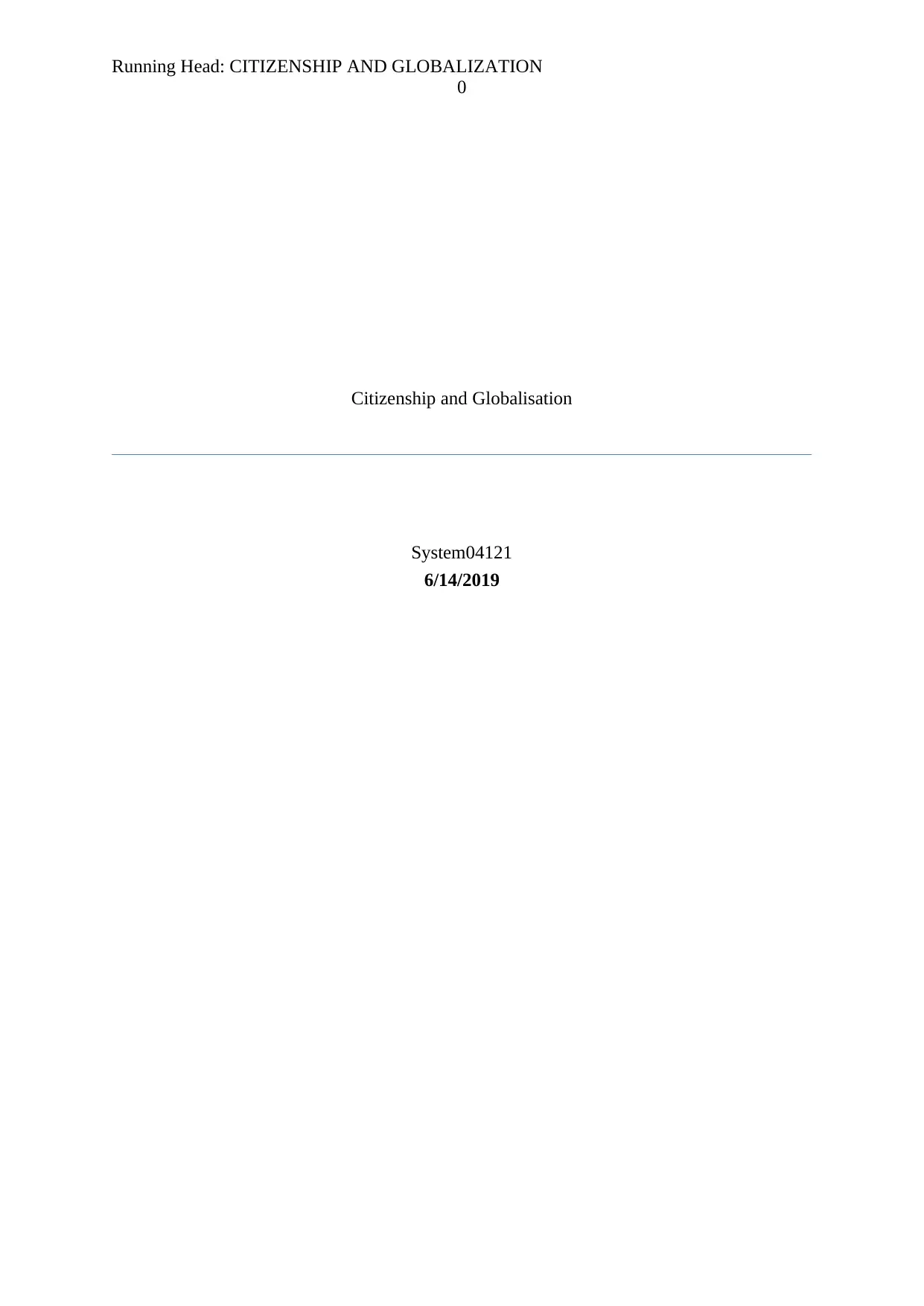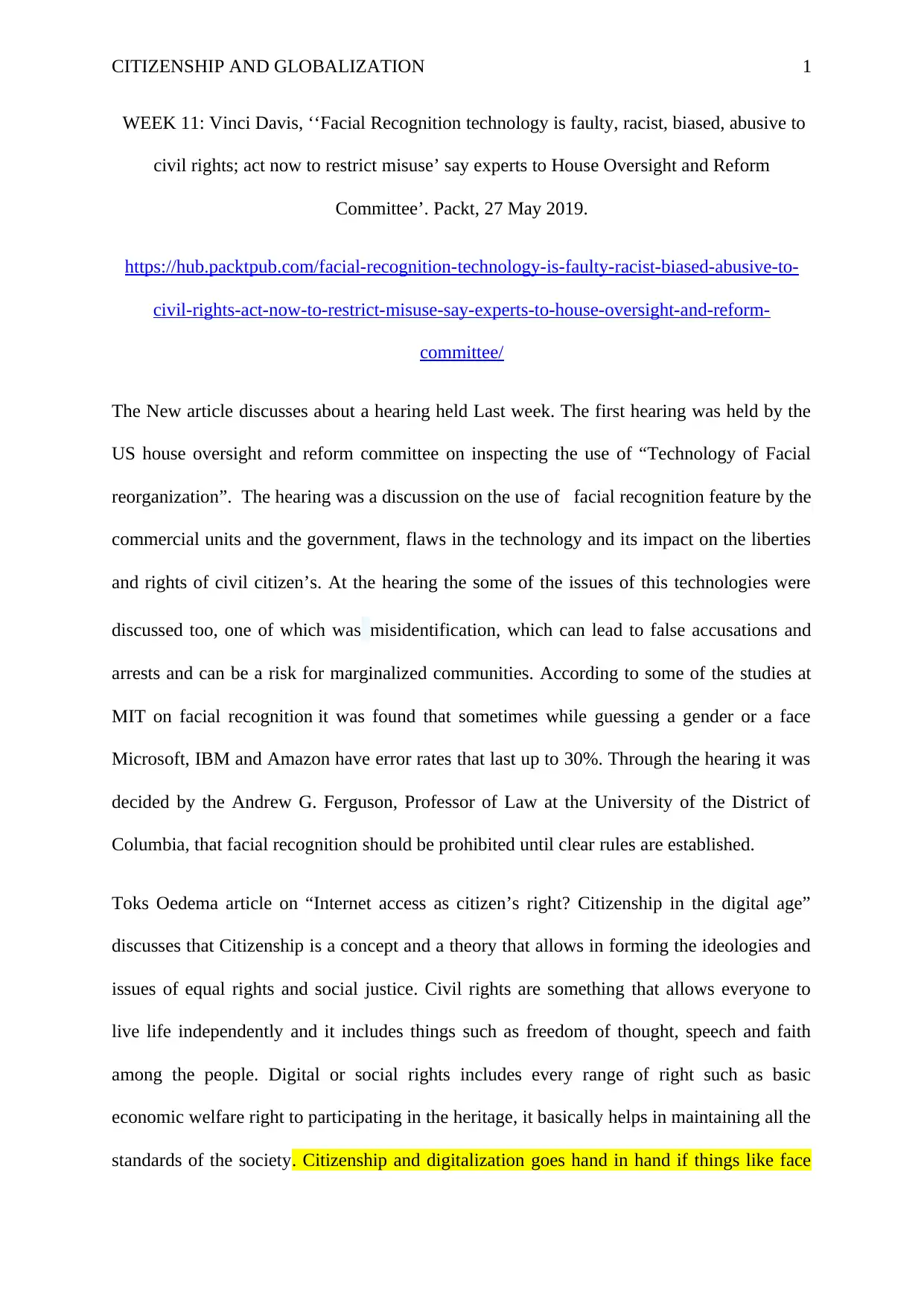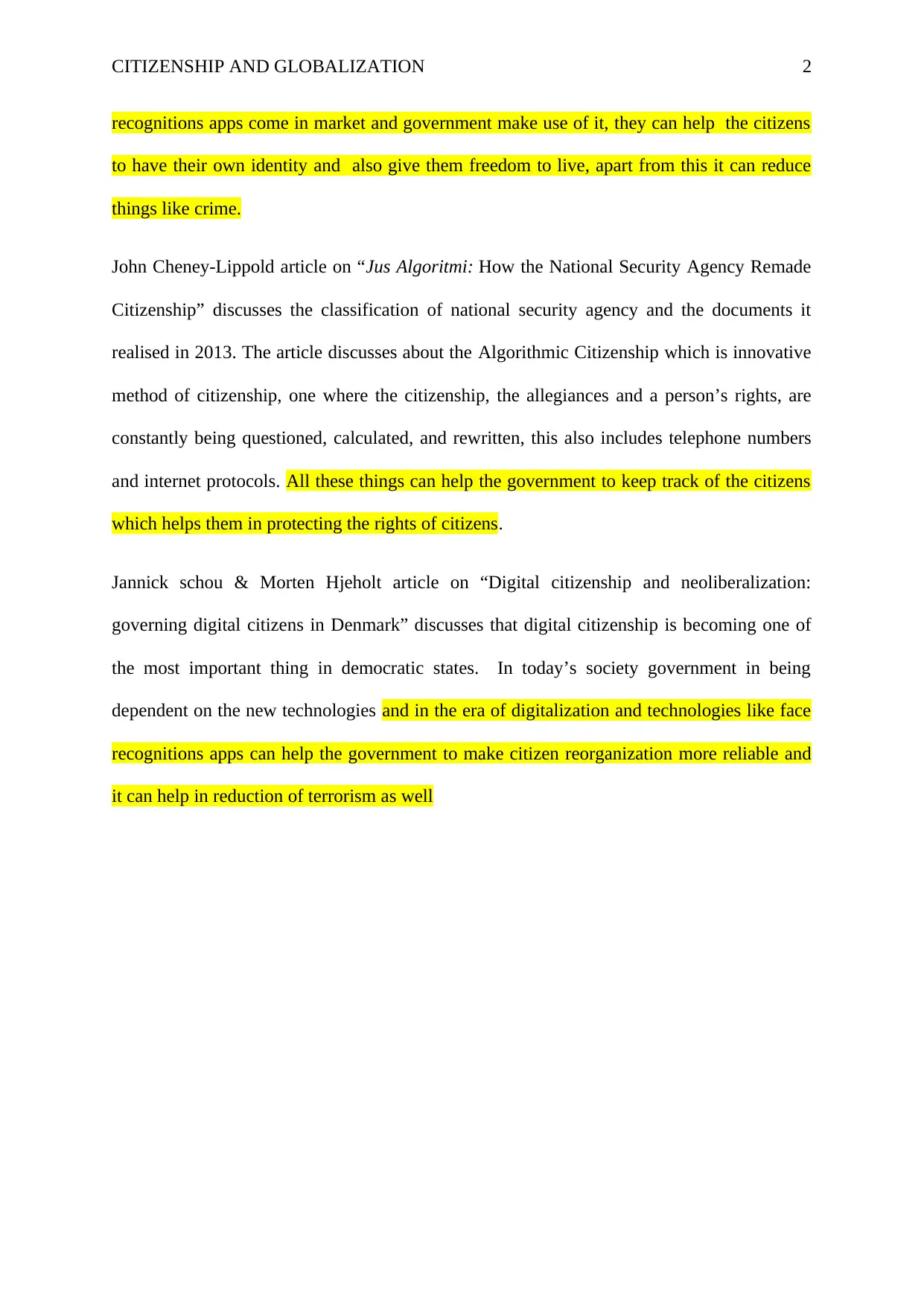Digital Citizenship in a Globalized World: Week 11 Essay Analysis
VerifiedAdded on 2022/12/20
|3
|585
|62
Essay
AI Summary
This essay explores the multifaceted relationship between citizenship and globalization in the digital age. It analyzes articles discussing facial recognition technology, digital rights, algorithmic citizenship, and the governance of digital citizens. The essay highlights concerns regarding misidentification, surveillance, privacy, and the increasing influence of digital technologies on citizenship practices. It also touches upon the challenges posed to liberal-individualist approaches to citizenship by increasing digital surveillance and the creation of algorithmic identities. The essay concludes by emphasizing the growing importance of digital citizenship in democratic states and the role of technology in citizen reorganization and security.
1 out of 3








![[object Object]](/_next/static/media/star-bottom.7253800d.svg)